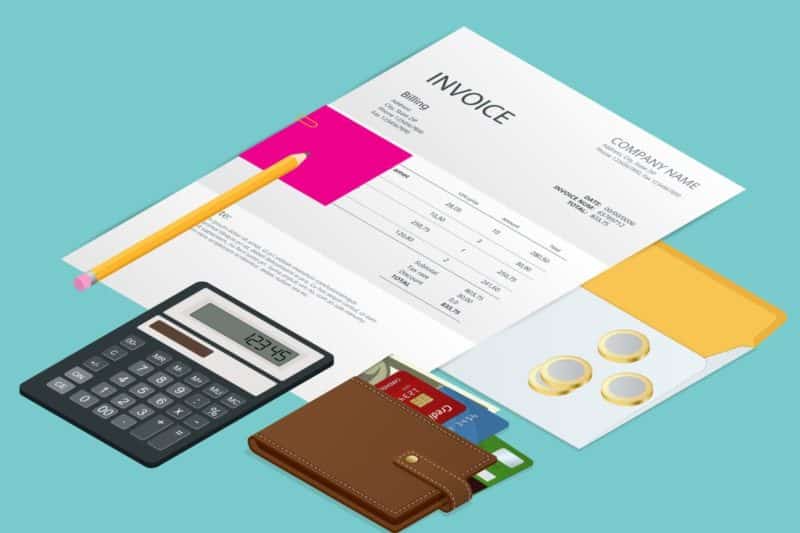Land sales grew by 6% last year, according to the National Association of Realtors’ Land Market Survey, and with good reason.
Since undeveloped property continues to be one of the most affordable types of real estate, first-time buyers can afford it more easily. But how do you buy land?
Sadly, purchasing land can be a difficult and overwhelming process. We’ll walk you through the process in this article so that when you decide to make this investment, you know exactly how to buy land with confidence and clarity.
What's Ahead...
1. Decide How You’ll Pay
Before you start looking for undeveloped land for sale, take a close look at your finances to make sure you can afford it and figure out how you’ll pay.
Paying cash is one of the better options because lenders charge more to finance vacant land as they view it as a riskier investment than a home that has already been constructed.
Budget for the land as well as other costs like utility installation and property taxes if you intend to pay cash.
If you decide to apply for a loan instead, it’s crucial to prepare your finances by paying down debt to reduce your debt-to-income ratio and beginning to save for a sizable down payment.
2. Compare Your Options
If you decide to finance your purchase, be aware that it can be a challenging procedure.
Contrary to normal mortgages, land loans have a larger risk for the lending institution because they deal with undeveloped real estate, which is reflected in their higher costs.
The loan options you have for financing your purchase are listed below.
Bank Or Credit Union Land Loan
A local bank or credit union may be able to provide a loan with better terms as they are more likely to be familiar with the local real estate.
An excellent place to start if you want to finance the acquisition of property but do not already have a solid banking relationship is a consumer-owned credit cooperative that focuses on rural and agricultural loans.
SBS 503 Loan
In collaboration with financial institutions, the Small Business Administration (SBA) offers SBA 504 loans to business owners who buy land for their company’s use.
With a 10% down payment, you might be eligible for this type of financing.
Home Equity Loan
If you currently own a property, you might think about taking out a home equity loan to access your current home equity.
This strategy will probably be far less expensive than a land loan but use caution when pledging your home as collateral.
USDA Loan
You may qualify for a USDA loan sponsored by the U.S. Department of Agriculture if the land is in an acceptable rural location and you intend to construct your primary residence there.
These loans often need a little down payment and have reasonable interest rates.
Seller Financing
You might be able to obtain seller financing if the landowner is keen to complete the sale.
The down payment, interest rate, and repayment terms should all be negotiated; it is best to accomplish this with the help of an attorney.
3. Consider The Expense
Owning land can have many hidden costs, such as paying for a septic system to be built, depending on how you intend to utilize the property.
People frequently overlook the additional carrying expenses associated with owning land, especially first-time landowners, in addition to the expenditures associated with purchasing and financing.
There are active management fees and responsibilities even if you have vacant land.
4. Find Land To Buy

There are a number of ways you can find land to buy. Here are some of those methods.
Real Estate Agent
Wherever you live, there may be a real estate agent (or several) who specialize in land sales or at the very least know where to find unlisted vacant plots of land.
Online Listings
If you already know where you want to buy land, you can start looking online for parcels that are being sold or auctioned off.
On general real estate listing websites like Zillow or realtor.com, you might try looking for land that is for sale. Alternatively, you might try searching on specialized land listing websites like landandfarm.com. Even Craigslist might have a listing for you.
Local Paper
You might be able to save money by getting in touch with the landowner directly if you see postings for plots being sold independently in the classifieds section of your local newspaper.
There may also be specialized periodicals containing listings for property related to your interests, such as property for farming, hunting, or recreation.
Government Land Listings
The government occasionally has land that is available, such as repossessed parcels. Websites like Realestatesales.gov and Disposal.gsa.gov allow you to look for what is available.
If this is your plan, be prepared to participate in the auction bidding process because that is how government-sold land is often sold.
Looking Yourself
You can also drive through the region you want to buy land in and look for for-sale signs, or you can go to a nearby real estate agency and look at the listings displayed in the window.
By using this method, you might be able to find land that isn’t already online.
5. Research The Property
When looking for land to buy, do your research before submitting an offer. Here are some important things to look into.
Utilities
Check if there are hook-ups for water, sewer, and electricity on the property. If there isn’t, you’ll need to install them yourself or look elsewhere for land if you can’t handle the hefty cost.
Zoning And Land-Use Restrictions
The land you want might not be zoned for residential use; if you don’t check, you might accidentally purchase property that is only intended for industrial, retail, or agricultural use.
Check your local zoning authority’s website or the town hall to find out the land regulations so you don’t make a crucial error.
Property Taxes
Property taxes can be costly on a piece of land, making holding the property for an extended period of time financially unviable.
Like other raw landowners, you should ensure that your parcels fall under agricultural exemptions if you plan on holding the property.
Road Access
You should check what kind of road access the property has. If it’s insufficient, you might need to build your own road out of pocket.
6. Make An Offer
You’re prepared to make the owner an offer once you’ve done your research on the property and know how you intend to fund the acquisition.
The specifics of the property, your contact information, the price you’re willing to pay, and other terms are all included in this written document.
In order to protect oneself from potential deal-breaking circumstances like zoning restrictions, environmental tests, and septic system permits, you should also add conditions in your offer.
You should hire a real estate attorney or real estate agent to draft the offer on your behalf if you aren’t an experienced buyer.
Frequently Asked Questions
Is Buying Land Worth The Investment?
Regardless of the year, purchasing undeveloped land is generally a wise investment. However, you must be aware that investing in raw land is a long-term approach and may not be profitable right away.
You would be better off continuing with conventional investment properties if you wanted a rapid payout or immediate income flow.
The Bottom Line
There are various conditions for obtaining a land loan compared to a mortgage for a home purchase, and purchasing land might be more expensive than purchasing a house.
Regardless of your decision, you can now make it with all the information and understanding given in this comprehensive guide.
Paul Martinez is the founder of BendingDestiny.com. He is an expert in the areas of finance, real estate, and eCommerce.
Join him on BendingDestiny.com to learn how to improve your financial life and excel in these areas. Before starting this blog, Paul built from scratch and managed two multi-million dollar companies. One in the real estate sector and one in the eCommerce sector.


